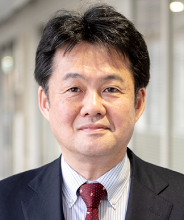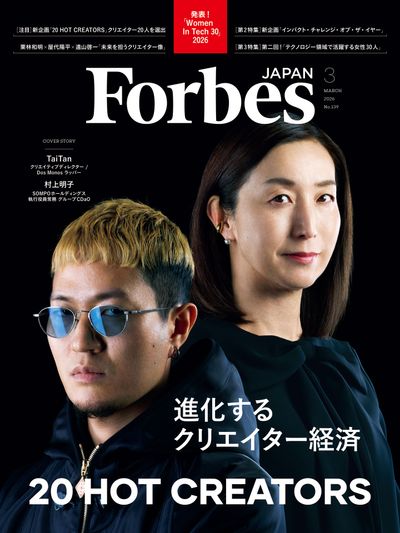Outline
RECWET booklet
(Jul 2025 edition)

Since the establishment in 2000, we have been conducting research and development of cutting-edge water environment control technologies using diverse approaches based on the integration and collaboration of basic sciences such as microbial ecology and practical studies such as water treatment engineering in order to meet the social challenges and expectations of realizing a sustainable water environment.
In 2019, the center was reorganized into three divisions. We are currently promoting research and education in collaboration with water-related researchers in a wider range of fields within the university, including Chemistry and biotechnology, Civil engineering and Material engineering. Additionally, Laboratory of International Wastewater-based Epidemiology, which was established in March 2024, is working to implement technologies developed through industry-academia collaboration in society. Furthermore, in October 2024, Shinshu University/The University of Tokyo Collaboration Branch Office was established, aiming to integrate advanced research in the water field by collaborating with Shinshu University.
Moreover, our activities in the water fields, including international cooperation, human resource development, and hosting international conferences, mainly conducted in Asia, are gaining international recognition. We will continue to promote research and education activities with the aim of becoming an international research hub for water environmental engineering.
We would appreciate your continued support for the activities of the center.
News & TopicsArchive>
- 2026/02/24
[Event] Special Seminar Series #70 (Dr. Justin B. Greer/Lecture)

On the afternoon of Friday, February 27th, Dr. Justin B. Greer from US Geological Survey (USGS) will give a special lecture titled "Tire-derived Contaminants and Aquatic Animal Health".
He is a computational and experimental biologist specializing in environmental chemistry, toxicology, and risk assessment. Don't miss this opportunity! Seminar details- 2026/02/09
[Publication] Press Release: True scale of COVID-19 spread revealed by wastewater surveillance (Project Prof. Kitajima)
A paper with Project Prof. Masaaki Kitajima (International Wastewater-based Epidemiology) as last author was published by Environment International on January 6, 2026. In addition, a press release was issued on February 9th in the name of Osaka University, Hokkaido University Hospital, the School of Engineering, UTokyo, and others.
"Wastewater surveillance reveals true scale of COVID-19 spread as clinical testing declines"
Press Relase in Japanese: https://www.t.u-tokyo.ac.jp/press/pr2026-02-09-001
Research at UOsaka in English: https://resou.osaka-u.ac.jp/en/research/2025/20260209_1
 ● Michio Murakami, Nobuhisa Ishiguro, Hiroki Ando, Mutsumi Ishida, Toshihiro Hamada, Sho Nakakubo, Reiko Oyamada, Takahiro Hayashi, Yusuke Niinuma, Keisuke Kagami, Tatsuya Fukumoto, Keisuke Taki, Tomoyuki Endo, Masaaki Kitajima (2026) Insights from wastewater surveillance into testing-related underreporting and hospital-acquired SARS-CoV-2 infections, Environment International, 207, 110028. https://doi.org/10.1016/j.envint.2025.110028
● Michio Murakami, Nobuhisa Ishiguro, Hiroki Ando, Mutsumi Ishida, Toshihiro Hamada, Sho Nakakubo, Reiko Oyamada, Takahiro Hayashi, Yusuke Niinuma, Keisuke Kagami, Tatsuya Fukumoto, Keisuke Taki, Tomoyuki Endo, Masaaki Kitajima (2026) Insights from wastewater surveillance into testing-related underreporting and hospital-acquired SARS-CoV-2 infections, Environment International, 207, 110028. https://doi.org/10.1016/j.envint.2025.110028
- 2026/01/29
[Lecture] Public Symposium at InterAqua 2026 (Prof. Takai, Emeritus Prof. Kato)



At InterAqua 2026 (Jan 28-30 @ Tokyo Big Sight), one of Japan's largest water business exhibitions, Research Group on Future Lifestyles and Water Science, chaired by Prof. Madoka Takai (Water Quality Control Technologies and Materials Development), held an exhibitor seminar on Jan 29.
At this open symposium, which was fully booked through advance registration, Prof. Takai gave opening remarks and an introduction to the research group, while Emeritus Prof. Takashi Kato (Shinshu U/UTokyo Collaboration Branch Office) gave a lecture.Website
● 高井まどか (2026) 開会挨拶・未来のくらしと水の科学研究会の紹介
InterAqua 2026 Seminar Schedule Details of the public seminar
Research Group on Future Lifestyles and Water Science
● 加藤隆史 (2026) 水の科学および自己組織化の化学を基盤とする水処理ナノ高分子膜の進展
未来のくらしと水の科学研究会 公開シンポジウム, InterAqua 2026, Jan 29, 東京ビッグサイト Aqua Stage.- 2026/01/23
[Media] Announcement! "Women In Tech 30" 2026 (Prof. Oguma)


Forbes Japan announced "Women in Tech 30" 2026 in its March issue. Prof. Kumiko Oguma (International Water Environment), the first person from outside the West to be elected as the President-Elect of the International Ultraviolet Association, was selected as one of the 30 women who will change the world in the field of technology. Her activities and profile were introduced in the magazine.
● 小熊久美子 (2026) 欧米以外で初、国際紫外線協会会長に, 「Women in Tech 30」2026 テクノロジー領域で世界を変える女性30人, Forbes Japan 3月号 (1/23発売), p.76-79.
Image:Forbes JAPAN MAGAZINE- 2026/01/16
[Event] Special Seminar Series #69 (Dr. Junyue (Holden) Wang/Lecture)
Dr. Junyue (Holden) Wang from the University of Maine in the United States, who specializes in disinfection of pathogenic microorganisms and oxidation treatment of persistent organic matter, gave a lecture on his latest research findings in the morning of January 16th. Dr. Holden, who has been conducting research in the United States for nearly seven years, answered questions from each participant in detail. The seminar also included a participant from the Graduate School of Agriculture and Life Sciences. Seminar details







